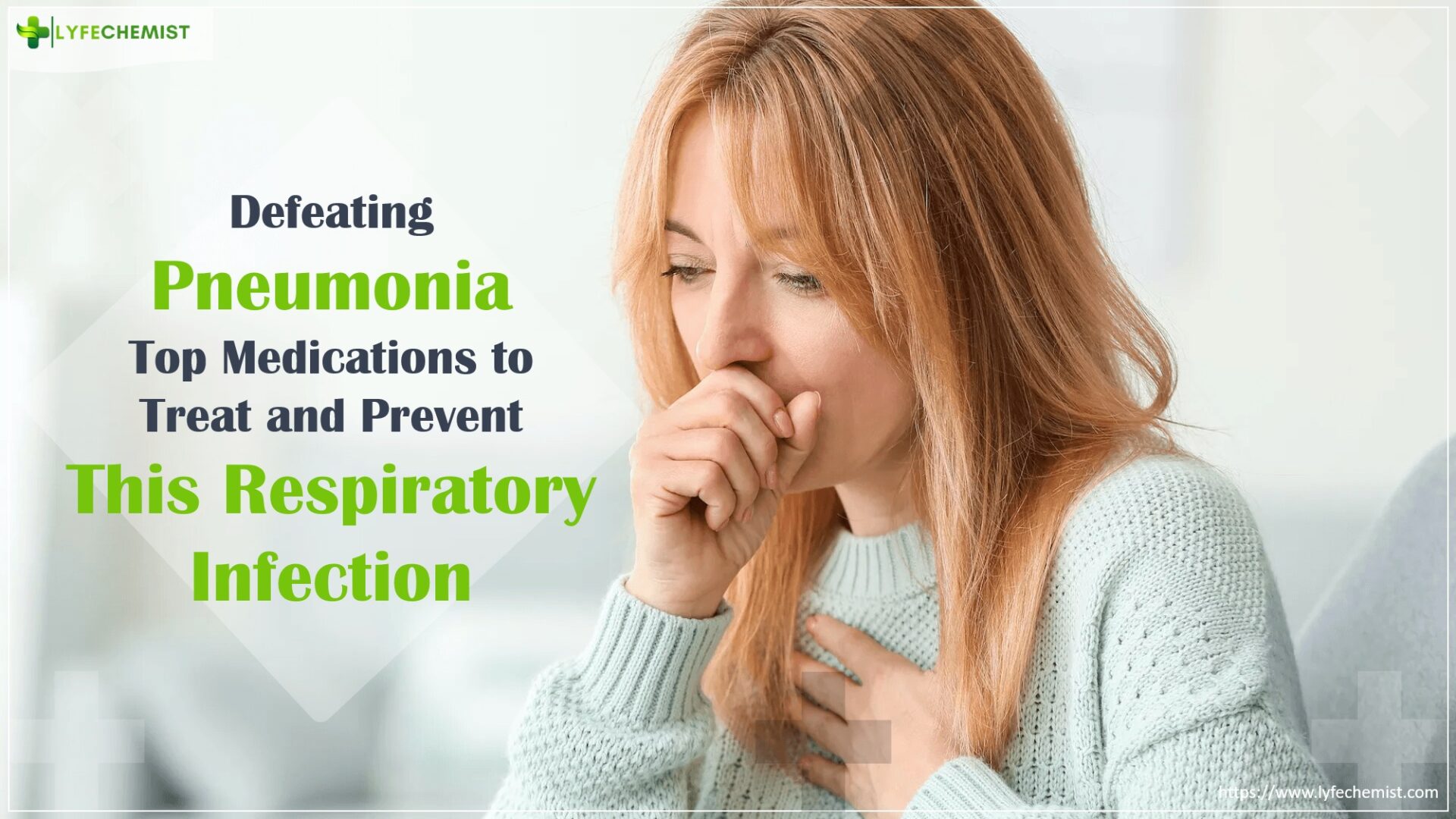Multiple factors decide the severity of Pneumonia in different patients like the type of germ that resulted in lung infection, age of the patient, and overall medical condition.
Patients above 65 years of age, young children, infants and people, and people with weak immunity or with other health issues are at higher risk of getting this infection. This disease can result in hospitalization for adults as well as children. Most people can be treated completely but takes weeks to recover fully. Its severity can be less severe.
What are the causes of Pneumonia?
Several germs can result in infection. But, the common ones are viruses and bacteria present in the air we breathe. Well, your body tries to prevent these germs from causing lung infection, but sometimes the germs succeed to enter the lungs even if you are healthy.
The disease is categorized according to the germ types that cause the infection and from where you catch an infection from.
What are the symptoms of this lung infection?
The signs & symptoms of this lung infection vary from mild to serious based on multiple factors like age, type of germ resulting in infection, etc. Mild symptoms & signs are the same as that of flu or cold but they remain for a longer period. Some of them include
- Chest pain while breathing or coughing
- Cough with phlegm
- Changes in mental health or confusion in older people(above 65 years).
- Fatigue
- Sweating, fever, and shaking chills
- Shortness of breath
- Vomiting, diarrhea, and nausea
- Low body temperature than normal
Risk Factors associated with Pneumonia
Hospitalization You are at higher risk of this infection if you are admitted to ICU, especially when the doctor uses a machine to help you breathe(ventilator).
- Smoking
It damages the natural power of the body to fight bacteria & viruses that lead to this disease.
- Chronic disease
You are at higher risk of developing this disease if you have COPD, heart disease, or asthma.
- Suppressed/weak immune system
People having AIDS or HIV having organ transplants or undergoing chemotherapy or taking steroids for a long time are at higher risk.
Diagnosis
The doctor will evaluate your health, check your medical history and perform a physical examination which includes listening to the lungs using a stethoscope to see if there are any unusual crackling or bubbling sounds that indicate pneumonia. If the doctor suspects the disease, he may suggest the following tests
- Blood tests
- Pulse oximetry
- Chest X-ray
- Sputum test
For hospitalized people over 65 years, having serious health issues, the doctor may recommend additional tests like:
- CT scan
- Pleural fluid culture
Treatment
Treatment for lung infection aims to cure the infection and prevent further complications. People with community-acquired infections can be treated at home using medicines and most symptoms will go away in a few weeks/days. But, you may face tiredness for a month or so.
The treatment options include:
- Antibiotics
Doctors prescribe medicines such as Cefdinir 300mg to treat bacterial pneumonia. It is an effective antibiotic that treats bacterial infections. It may take some time to find the type of bacteria and choose an antibiotic. You need to use this antibiotic for the prescribed duration in the exact dose even if you see symptoms disappearing before completing the treatment.
-
Cough medicine
Cough medications can be used to ease your cough to help you relax. Coughing helps make the fluid loosen and remove it from the lungs, it is better not to eradicate the cough. Also, a lot of studies say that OTC cough medication can also help reduce related cough, but it is better to consult your doctor for complete treatment.
-
Pain relievers/fever reducers
You can take these if required for fever & uneasiness. These drugs can be aspirin, acetaminophen, ibuprofen, etc.
Top medications to treat Pneumonia caused by bacteria
- Vibramycin
- Cefpodoxime
- Augmentin
Cases where hospitalization is required
- People above 65 years of age
- Patients develop confusion about places, time, and people
- Reduced kidney function
- Systolic BP drops to 90 (mm Hg)/diastolic blood pressure drops to 60 mm Hg or less
- Need help breathing
- Breathing is faster (30 breaths plus per minute)
- Body temperature drops below normal.
- Heart rate falls below 50 or increases to 100 or above
If you need a ventilator or symptoms turn severe, you will be sent to ICU in the hospital.
Hospitalization in children
- Children below 2 months
- Kids feel more sleepy or lethargic
- Find trouble breathing
Children may be hospitalized if:
- They are less than 2 months old
- They feel tired or excessively sleepy
- They have trouble breathing
- Blood oxygen levels drop
- Kids become dehydrated.
Things to remember to prevent Pneumonia
- Vaccination
A lot of vaccines are easily available to prevent specific pneumonia types and flu. You can check with our physician about getting these vaccines.
- Vaccination for children
Ensure that your child is vaccinated. Doctors suggest a different vaccine for children below 2 years and for children from 2-5 years of age as they are at risk of getting pneumococcal disease. Doctors also suggest flu vaccines for kids above 6 months.
- Maintain good hygiene
Ensure you maintain good hygiene to safeguard against lung infections that can lead to this disease. Wash your hands frequently using hand sanitizer containing alcohol
- Do not smoke
Smoking can harm your lungs and the natural ability of your body to fight respiratory infections.
- Keep your immunity stronger
Sleep for 8 hours, exercise daily, and eat well.
When can I resume my daily routine if I have this disease?
Ideally, you can get back to your routine if the symptoms have disappeared and no new symptoms exist like
- Tiredness, breathlessness
- Fever, mucus, or cough
- Chest pain.
It takes nearly a week to get back to normal health. So, once you feel healthy, you can perform regular activities and return to your normal routine.
FAQs
Q-Can I get pneumonia without a fever?
Certainly, fever is a common symptom of this disease, still, it is possible to get the infection with no or low fever.
Q-Is the treatment for this disease different for children?
This disease is not treated differently in children. But, in young children, there will be a high risk of severe illness due to lung infection. So, they are more likely to get admitted to the hospital for treatment than adults.
Q-What can be done to keep lungs healthy?
Good oral hygiene and eating habits can help you prevent lung diseases. Keep washing your hands frequently and do not go to crowded areas where people are ill. Also, prevent exposure to air pollution and smoking as they are lung irritants.
Summary
Do not overlook the symptoms of pneumonia as the lung infection needs to be treated completely. It can affect your lungs and breathing pattern. Discuss with your doctor about preventing it and take the suggested medications or vaccines. Follow the schedule for tests if the doctor suggests any as it will help the doctor identify the cause of the infection.







Write a comment
Your email address will not be published. All fields are required